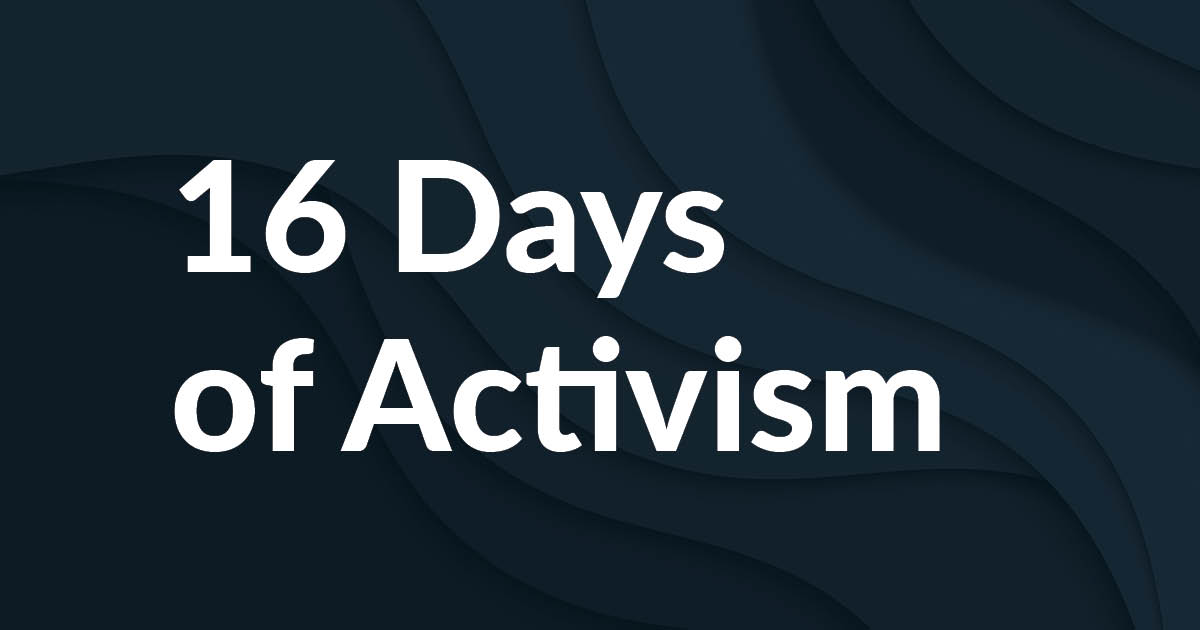16 Days of Activism – Domestic abuse and accessing support

As part of 16 Days of Activism, we caught up with the College’s Student Services Assistant Caroline Hall, who has previously worked for Police Scotland and Edinburgh Domestic Abuse Court Support Service, to find out more about the impact of domestic abuse and how to access support.
During 16 Days of Activism, people around the world unite to raise awareness of gender-based violence, challenge discriminatory attitudes, and call for improved laws and services to help women and girls live free from all forms of violence, abuse, exploitation and harassment.
Whilst the festive season is a time to celebrate with friends and family, it is important to remember that domestic abuse does not take a break, and you should continue to look out for yourself and others throughout the holidays.
How to spot signs of domestic abuse
Coercive control can be a warning sign of domestic abuse and does not involve a single incident but a pattern of behaviours that can often build up over a period of weeks, months and even years. It is perpetrated by an individual whose purpose is to exert power and control over another. Often, a victim will not realise they are being controlled, especially when there has been no physical violence.
Common signs of coercive control include:
- Isolation from family and friends – preventing or discouraging you from seeing them.
- Excessively jealous – accusing you of cheating.
- Controlling how you spend your money.
- Insulting your appearance, intelligence or interests.
- Try to humiliate you or put you down in presence of others. Make you feel inferior. Say you are worthless. Telling you what to wear or where to go.
- Have a quick or unpredictable temper. Minimising their actions and blaming you for behaviours.
What should I do if I think someone I know is at risk?
If you believe a friend may be an abusive relationship, talk to them and support them. Tell them you are worried about them and ask if they are ok. DO NOT tell them to leave. Separation is one of the main risk factors to be aware of. If a perpetrator thinks that they are about to lose control of their partner, it can escalate the situation. Leaving an abusive relationship has to be managed very carefully but this is where support services can help.
Encourage the friend to speak to a specialist organisation which deals with domestic abuse. They will identify and assess risks and help create a person-centred safety plan regardless if they wish to remain in a relationship or not. They will not tell people what to do.
It is not for anyone to judge what happens in anyone’s relationship but it is for all of us to act if we are concerned about someone’s safety.
Accessing support and reporting domestic abuse
Anybody can experience domestic abuse, regardless of race, gender, age or other identifying factors and there are services that can support everyone, not just women.
During term time, students can contact the College’s Safeguarding or Wellbeing team about any concerns they have for themselves or others.
To contact the team, email wellbeing@edinburghcollege.ac.uk.
Students can also find out more information and access support from specialist organisations via the Student Services Hub on Teams.

